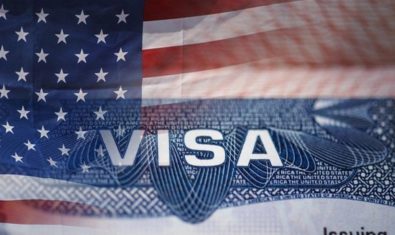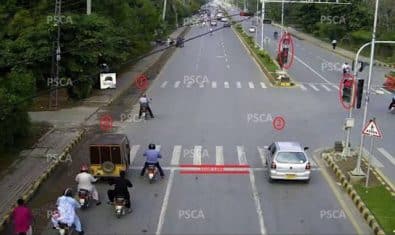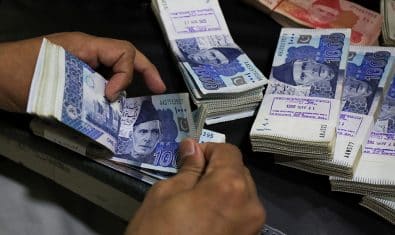The salaried class pays tax on gross earnings without any allowable deduction, as against other classes of taxpayers, so the high rate of tax of 35 percent is unfair and oppressive, the Salaried Class Alliance said in a letter to the Tax Anomaly Committee.
The alliance raised some big concerns about tax policies outlined in the Budget 2024-25 last week. It said the budget unfairly targets the salaried class, while agriculture has an extremely low revenue contribution and is “the biggest parking lot for corruption and illegal money”.
The letter criticized the government’s approach of focusing on those already paying taxes instead of expanding the tax base. It highlighted the ambitious tax collection target for the Federal Board of Revenue (FBR) at Rs. 12,970 billion, 38 percent higher than last year, which places additional strain on the salaried class and other taxpaying segments.
The letter outlines the following grievances.
Further Increase in Tax Rates of Salaried Class
The alliance said the salaried class in Pakistan is heavily burdened due to high inflation and inconsistent availability of essential services such as gas, electricity, etc. Despite suggestions to increase salaries for government employees by up to 35 percent and pensions by up to 22 percent, the private sector, experiencing similar inflationary pressures, remains significantly burdened by high taxes.
Anomalies Highlighted
- The salaried class pays tax on gross earnings without any allowable deduction, as against other classes of taxpayers. Therefore, the high rate of tax of 35 percent is unfair and oppressive.
- Instead of focusing on broadening the tax base, the Government has once again attempted to target, the already depressed, salaried class.
- As per the 2nd schedule to the Income Tax Ordinance, 2001, tax on the monetization of transport facilities for high-grade civil servants of BS-20 to BS-22 is taxed at 5 percent as a separate block. No such reduced rate is allowed in the private sector salaried class.
- Any sum representing encashment of leave preparatory to the retirement of a member of the Armed Forces of Pakistan or an employee of the Federal Government or a Provincial Government is exempt from tax. No such exemption is allowed for salaried class working in the private sector.
- The perquisite represented by the right of the President of Pakistan, The Provincial Governors and the Chiefs of Staff, Pakistan Armed Forces to occupy free of rent as a place of residence any premises provided by the Government is exempt from tax. No such exemption is allowed to the salaried class working in the private sector.
- The perquisite represented by free conveyance provided and the sumptuary (entertainment) allowance granted by the Government to the Chiefs of Staff, Pakistan Armed Forces and the Corps Commanders is exempt from tax. No such exemption is allowed to the salaried class working in the private sector.
The Alliance suggests the restoration of tax rates and tax credits for investments and payments against insurance for the salaried class. Additionally, they propose several alternative ways to increase tax collection without disproportionately impacting salaried taxpayers:
Alternative Ways to Increase Tax Collection
- Collection of taxes from 7.5 million registered taxpayers who are not tax filers (but registered) and from other taxpayers who are not yet registered.
- Bring FBR valuations to market price to realize the full potential of tax revenue from imposing the 15 percent Capital gain taxes on the purchase/sale of immovable properties.
- Agriculture accounts for a large portion of GDP with an extremely low revenue contribution. Moreover, the agriculture sector is the biggest parking lot for corruption and illegal money. If agriculture tax is not paid to provincial authorities, FBR must be allowed to collect tax as per the Income Tax Ordinance, 2001. If tax is paid to provincial authorities, a Federal tax return must be filed along with a wealth reconciliation.
- Advance Tax on the purchase and sale of land by housing societies is not collected due to the “Transfer of Files” practice. To ensure transparency and documentation, societies should be required to record and register each purchase/sales transaction with the Real Estate Regulatory Authority [RERA].
- Publicize the sales tax/income tax payment of leading restaurants online to ensure that they declare their full sales and pay appropriate income tax.
- The advance income tax of 5 percent collected from Electricity bills issued to non-filers (not having STRN)/unregistered industrial connections) should be increased to 30 percent.
- The advance income tax of 7.5 percent collected from non-filer domestic connections can be increased to 20 percent if the bill exceeds 200,000 per month.
- An advance tax of 20 percent should be levied on gas bills issued to non-filer Industrial / Commercial connection holders.
The Alliance urges the government to reassess the proposed tax policies and address the broader issue of tax evasion and under-reporting within the economy, emphasizing that equitable tax burden distribution is essential for sustainable economic growth.

Follow ProPakistani on Google News & scroll through your favourite content faster!
Support independent journalism
If you want to join us in our mission to share independent, global journalism to the world, we’d love to have you on our side. If you can, please support us on a monthly basis. It takes less than a minute to set up, and you can rest assured that you’re making a big impact every single month in support of open, independent journalism. Thank you.


























